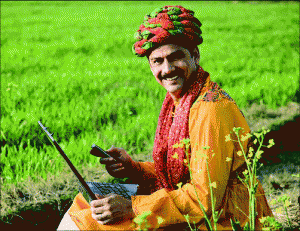E-Governance; the Course to Good Governance
Monday, October 17th, 2011 9:56:32 by Fayyaz Yaseen
By definition, e-governance means ‘using web-based internet applications to ensure the access of ordinary citizens to the information held by government officials, and resultantly, to bring about improvements in the government operations’.
E-governance is not a new concept; neither in the world nor in Pakistan. Rather, both developed and the developing countries are making use of it for over a decade. However, there is a great difference in the extent to which respective societies have benefited from it.
The societies with greater political awareness and stronger democratic structures (the developed world) have witnessed great positive changes in the functioning of their governments since the inception of the idea. Enjoying an equal support from the authorities concerned, they have constantly evolved this system to ensure a smooth functioning of the local administrations and have contributed towards making lives of the ordinary citizens easier.
Unfortunately, the situation is quite contrary in case of developing countries which have yet to experience the essence of democracy. The idea of e-governance in developing countries was more of donor induced rather than people induced. And the little place that was granted to this concept to work was only because the respective power holders in the developing societies were oblivious of what role it could play in strengthening the ordinary people and holding the governments accountable before the masses.
However, upon the realization of what damage they were up to cause to themselves, they did not take longer before posing bureaucratic impediments for hindering people’s access to information. Pakistan, being a part of the developing world, was no exception in meting out the idea with a similar destiny.
The contemplation on what the e-governance could have helped achieve in Pakistan can be best understood by the examples of countries where it has been put in practice. However, before dwelling on to such examples, it is important to draw upon the virtues ensuring which the e-governance contributes towards improving the quality of lives of the common people.
A system of e-governance requires from the government authorities to put up all the information regarding functioning of its various departments, their rules and regulations and important announcements on their respective websites for everyone to see. Doing so not only widens the scope of transparency but also significantly roots out the endemic corruption. When all important information is available on the internet, no one needs to grease the palms of the officials for extracting them.
Moreover, by establishing an online complaint mechanism, the administrative officials can reach out to the masses and take practical steps in addressing their vows through democratic participation, strengthened policy analysis and consultative decision making. E-governance not only reduces the government’s operational cost in delivering services at citizens’ door steps, but also enhances people’s confidence on their representatives amid the transparent decision making process.
The countries with an efficient system of e-governance have come out of the rigmarole of dealing with the complaints with little evidence for their persuasion in the arbitrary courts. They have attained budget and financial transparency and resultantly a greater financial, political and social stability.
Tags: corruption, e-governance, egovernance, transparencyShort URL: https://www.newspakistan.pk/?p=348

















